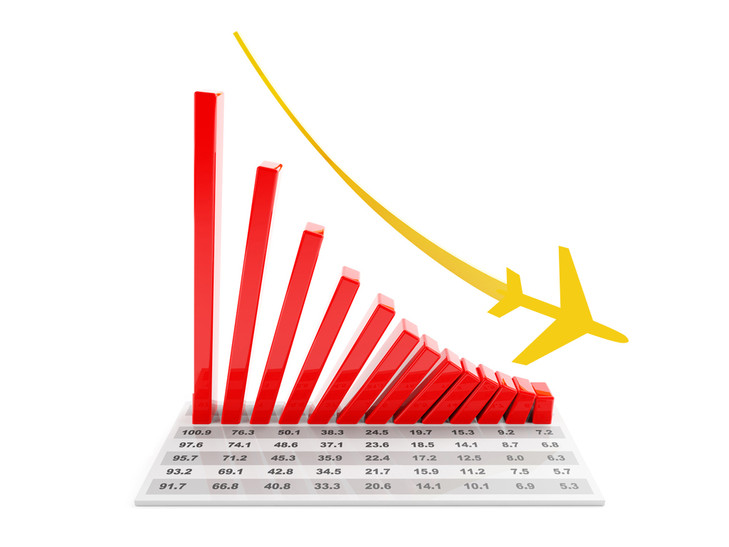Bumpy start to 2016 continues
01 / 04 / 2016

Air cargo’s difficult start to 2016 continues, led by Asia Pacific and North America, with worldwide volumes in February down by 3.8% year-over-year (YoY), the largest drop in three years.
Latest analysis from Netherlands-based WorldACD described Asia Pacific and North America as the “main culprits,” stating: “For January/February together, their YoY volume decrease now stands at more than 7%.
“Africa, Europe and Middle East & South Asia each show around 5% growth for the same period.”
The research house, which uses airline data, said that the weak YoY figures for Asia Pacific and North America should to be viewed against the backdrop of last year’s windfall due to the US container port dispute.
“Also, the negative impact of Chinese New Year on the February totals was bigger this year as it took place much earlier in the month than last year.”
Negative YoY patterns around Chinese New Year (CNY) provided further confirmation of the “air cargo slide” in Asia Pacific, said WorldACD.
“The usual strong dip after CNY was deeper this year than last year, and also lasted longer in terms of ‘low-business days’.
“From China and Hong Kong, the 2015 post-CNY-dip showed only one day with less than 10% of the pre-CNY volumes; this year there were four such days.”
The research house said that the “more positive news” is that worldwide yields, measured in US$, remained “basically stable” between January and February.
It continued: “Even so, we noted considerable differences between the various origin regions: Africa and Europe were also leading in this category, with a 7.6% jump in African yields (in US$) and one of 2.2% in European yields (in euros).”
According to WorldACD, the transport of perishables “reinforced its reputation of performing much better than general cargo,” with increased volumes and a much lower percentage drop in yields.
Commenting on a potential modal shift from air to sea for this product sector, WorldACD said: “Although certain perishables look immune to that shift so far, whether or not a modal shift may take place differs from country to country and from one commodity to another.”














